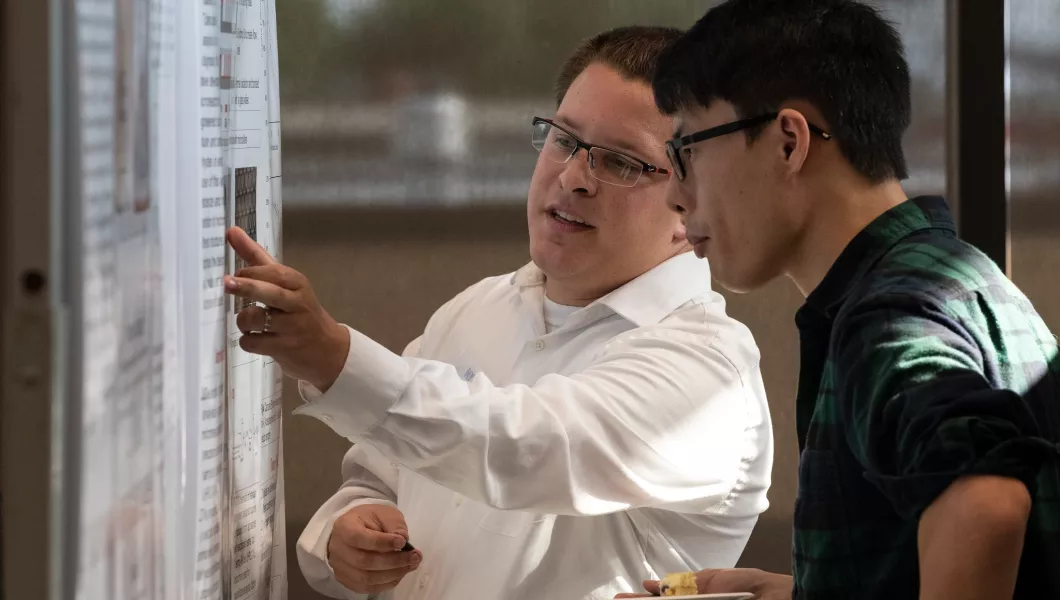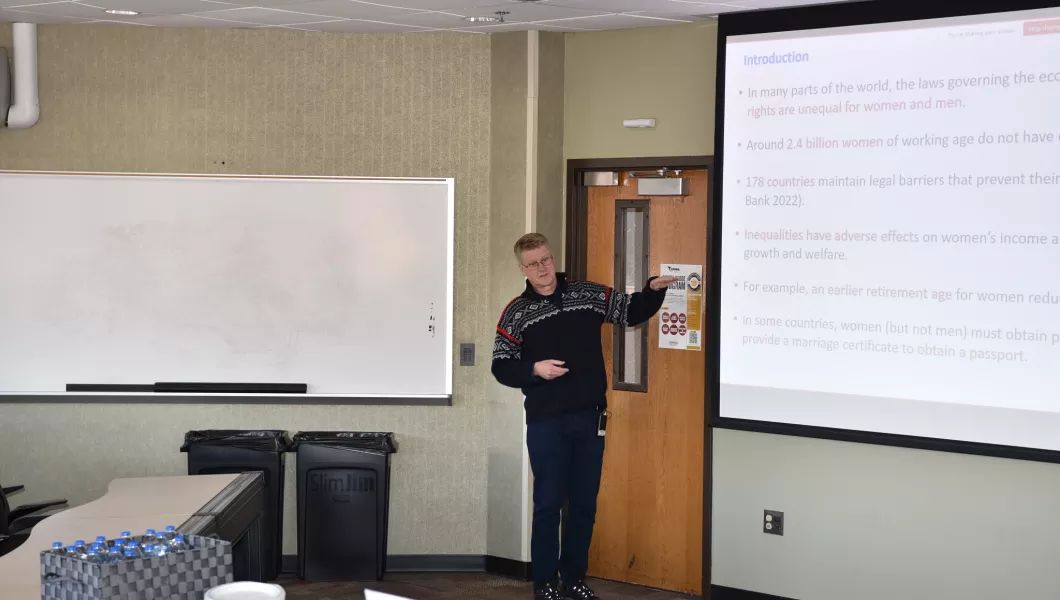Faculty Research
Ideas that shape the future of business
At the College of Business, faculty research drives innovation, shapes industries and creates meaningful impact in our community and beyond. Our scholars are thought leaders whose work advances knowledge in entrepreneurship, economics, finance, marketing, management and more.

Summer 2025 Publications
Economics professor honored with top scholar rankings
Per Fredriksson has been honored in the ScholarGPS rankings. He is ranked in the top 0.35% overall (all fields), 0.31% in Economics, 0.03% (#5) in Environmental Policy and 0.09% (#18) in Corruption Studies. He has also been included in the Research.com 2025 Ranking of Best Scientists in Political Science, where he is ranked #482 in the world and #257 in the U.S.

Spring 2025 Publications
Assistant professor of accountancy featured by Oracle Academy
Hilda Carillo was featured by Oracle Academy for her collaboration with Patrick Johnson, chief operating officer and partner at Louisville-based Oasis Solutions, to develop a curricular innovation that integrates Oracle NetSuite ERP simulation cases into her accounting course.
Faculty publish new works in economics and management
Tom Lambert, Associate Professor of Economics and Equine, has published a book chapter titled “Displaced Worker Angst and Far-Right Populism” in the book Neoliberal Economic Policy and the Rise of Right-Wing Populism.
James Fiet, Professor of Management, has published a book titled “The Theoretical Logic of Strategy” with Springer Nature.
Faculty recognized with editorial appointments and awards
Saurav Chakraborty, Assistant Professor, Information Systems, Analytics & Operations, has been appointed as an Associate Editor for Decision Support System, an elite journal on our journal list.
Marketing Professor, Mike Barone, has been honored with the 2024 Outstanding Reviewer Award and appointed as an Associate Editor for the Journal of Consumer Psychology.
Entrepreneurship professor invited to deliver featured talks
Daniel Bennett, Associate Professor of Entrepreneurship, was invited to deliver two distinguished talks this spring. He presented “Riding the Populist Wave: Entrepreneurial and Firm Responses to the Changing Political Current” as a plenary lecture at the Public Choice Society Annual Conference in Louisville, Kentucky. He also spoke on “Rethinking Capital(ism) in the 21st Century” at the Workshop on the Law & Political Economy Project, hosted by the Law & Economics Center of George Mason University in Destin, Florida.
